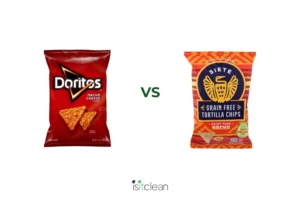
Acesulfame potassium is a zero-calorie sweetener that is added to many sugar-free…



Dextrin is a carbohydrate derived from starchy sources such as corn, potato, rice, or tapioca. It is commonly used in the food industry as a thickening agent or stabilizer. Dextrin is produced through the hydrolysis of starch, which involves breaking down the large starch molecules into smaller, more soluble dextrin molecules. It is enzymatically derived from corn, arrowroot, potato, rice, or tapioca starch. Dextrin is commonly found in baked goods, snacks, and processed foods to enhance texture, retain moisture, and improve shelf life.

Dextrin is rich in soluble fiber that has been associated with many health benefits, including beneficially modifying the gut microbiome. Research suggests that dextrin may modify satiety and glycemic responses, however, longer-term studies are necessary for understanding how this impacts body weight and metabolic markers. Dextrin may be derived from GMO corn.
Health is like a bank account, certain ingredients make a deposit into your health bank, meaning they add to
your health. Certain ingredients withdraw from your health bank. We want health promoting ingredients in our diet. To keep things simple, we rate ingredients on a green, yellow, red scale:

It is naturally occurring in food and has no harmful effects on the body. It is real food. It is health promoting.

It goes into one or more of the below categories

It is known to have a harmful effect on the body (ex. All food colorings, Natural Flavors, MSG, Potassium bromate, aspartame, artificial flavors)



The Food Showdown: Popcorners flavors
Ingredient Rating: Canola oil – is it bad for you?
Clean Consuming: Nourishment for your

We have accomplished so much in just 1 year since our launch in March of 2023! We now have 10,000

The Nacho Chip Food Showdown, is Tapioca Starch safe in food? and a must-see documentary on America’s food system.
Stay in the know with the latest ratings, articles, and our newsletter, The Dirt.